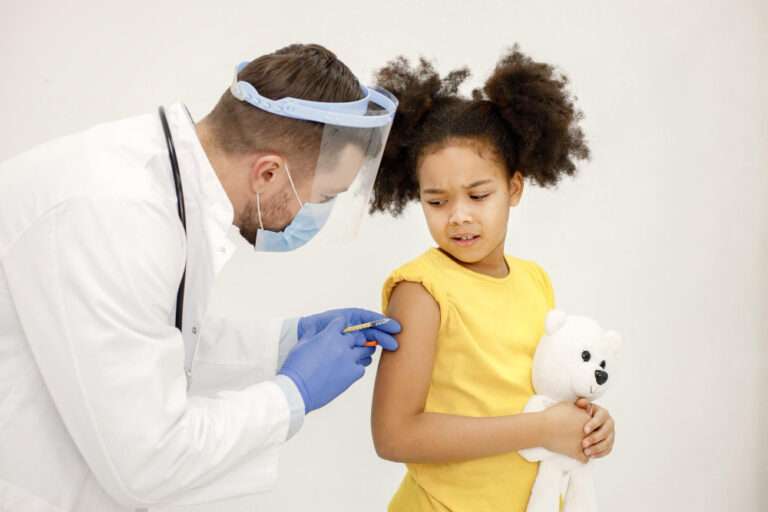Diphtheria, Tetanus, and Pertussis (DTaP)
The Diphtheria, Tetanus, and Pertussis (DTaP) vaccine is an essential part of routine childhood immunization programs. It provides protection against three serious bacterial diseases: diphtheria, tetanus, and pertussis (whooping cough). Here’s what you need to know about the DTaP vaccine in children:
1. Components of the DTaP Vaccine:
- Diphtheria: Diphtheria is a bacterial infection that can cause a thick, grayish membrane to form in the throat, potentially leading to difficulty breathing, heart problems, and nerve damage.
- Tetanus (Lockjaw): Tetanus is caused by a bacterial toxin and can lead to severe muscle stiffness and spasms, including the jaw muscles (hence the name “lockjaw”). It can be life-threatening.
- Pertussis (Whooping Cough): Pertussis is a highly contagious respiratory disease characterized by severe coughing fits, which can lead to complications, particularly in infants and young children.
2. Immunization Schedule:
- The DTaP vaccine is administered in a series of five doses:
- The first dose is usually given at 2 months of age.
- The second dose is given at 4 months.
- The third dose is given at 6 months.
- The fourth dose is given at 15-18 months.
- The fifth dose, referred to as the “booster,” is administered at 4-6 years of age.
3. Booster Doses:
- After the initial series, children receive a booster dose at age 4-6 years to ensure continued protection.
- In adolescence, a tetanus-diphtheria-pertussis (Tdap) vaccine is recommended, which provides a booster against these diseases.
4. Combination Vaccines:
- The DTaP vaccine is often combined with other vaccines to reduce the number of shots a child receives. For example, a combination vaccine called Pentacel includes DTaP, polio, and Haemophilus influenzae type b (Hib) vaccines.
5. Safety and Side Effects:
- The DTaP vaccine is generally safe and effective.
- Common side effects may include redness or swelling at the injection site, mild fever, and fussiness or irritability.
- Serious side effects are rare but can include severe allergic reactions (anaphylaxis).
6. Herd Immunity:
- Widespread vaccination with DTaP helps protect the entire community, including those who cannot be vaccinated (e.g., infants too young to receive the vaccine or individuals with certain medical conditions).
7. Importance of Vaccination:
- The DTaP vaccine is critical for preventing diphtheria, tetanus, and pertussis, which can have severe and potentially life-threatening complications, particularly in infants and young children.
- Vaccination also helps to reduce the spread of these diseases in the community.
8. Booster Shots for Adults:
- It’s important for adults to receive tetanus and diphtheria booster shots (Tdap) to maintain immunity against these diseases.
Vaccination with the DTaP vaccine is an important component of pediatric healthcare and public health efforts to prevent serious bacterial infections. It’s essential for parents and caregivers to follow the recommended vaccination schedule to ensure that children are adequately protected against these diseases.
------------From our Sponsors------------









